King George (16 page)
Authors: Steve Sheinkin

N
othing nearly this funny was happening in Cornwallis's camp. “We get terrible provisions now,” said one miserable British soldier in Yorktown. “Putrid meat and wormy biscuits that have spoiled on the ships. Many of the men have taken sick here.”
othing nearly this funny was happening in Cornwallis's camp. “We get terrible provisions now,” said one miserable British soldier in Yorktown. “Putrid meat and wormy biscuits that have spoiled on the ships. Many of the men have taken sick here.”
In early October, Washington started to see dead horses floating in the York River outside the British camp. The meaning was clear: the British didn't even have enough food left to feed their animals. Sensing that victory was near, the Americans and French kept bombing Yorktown day and night.
*Then, on the morning of October 17, a teenage British drummer came out of Yorktown beating his drum. The Americans couldn't hear the drum over the sound of exploding cannonballs, but behind the drummer boy they saw a British officer waving a white handkerchief.
Cornwallis was ready to surrender.
Henry Knox
Alexander Hamilton
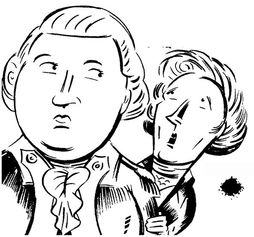
T
he official surrender took place on the afternoon of October 19, 1781. Altogether, 7,247 British and German soldiers marched out of Yorktown and threw down their guns. They really threw them downâthey were trying to break them so the Americans wouldn't be able to use them.
he official surrender took place on the afternoon of October 19, 1781. Altogether, 7,247 British and German soldiers marched out of Yorktown and threw down their guns. They really threw them downâthey were trying to break them so the Americans wouldn't be able to use them.
“The British officers in general behaved like boys who had been whipped at school,” remembered one New Jersey soldier. “Some bit their lips; some pouted; others cried.”
A British marching band played a tune called “The World Turned Upside Down.” And upside down is exactly how Charles Cornwallis felt on October 19. In fact, he was so upset by this defeat that he sent a message to Washington saying he was too sick to come to the surrender ceremony.
When Cornwallis finally did meet the Americans a few days later, he was in for one final shock. There in the American camp, proudly wearing his American uniform, was Cornwallis's trusted waiter, James Armistead!
W
ashington. wrote a quick note to Congress, telling them the big news. “I have the honor to inform Congress,” he began, “that a reduction of the British army under the command of Lord Cornwallis is most happily effected.” The news spread quickly, sparking celebrations from Georgia to New Hampshire.
ashington. wrote a quick note to Congress, telling them the big news. “I have the honor to inform Congress,” he began, “that a reduction of the British army under the command of Lord Cornwallis is most happily effected.” The news spread quickly, sparking celebrations from Georgia to New Hampshire.
The reaction was quite different in London. When the Yorktown news arrived in late November, it struck Lord Frederick North like a bullet to the chest. Remember, this is the guy who had once so boldly
declared, “America must fear you before she can love you.” Now he started pacing up and down the room, waving his arms wildly and shouting, “O God! It is all over!”
declared, “America must fear you before she can love you.” Now he started pacing up and down the room, waving his arms wildly and shouting, “O God! It is all over!”
King George didn't agree. “I have no doubt,” he wrote, “that when men are a little recovered from the shock felt by the bad news ⦠they will then find the necessity of carrying on the war.”
When it became obvious to the king that he was the only person on the planet who felt this way, he got so depressed that he actually tried to give up his crown! He wrote a letter to Parliament, saying:
“His Majesty therefore with much sorrow finds he can be of no further utility to his native country, which drives him to the painful step of quitting it forever.”
George's friends talked him out of this rash decision. And the king finally accepted the fact that the United States had won its independence. Peace talks began. Ben Franklin and John Adams, still driving each other crazy, represented the Americans.
King George
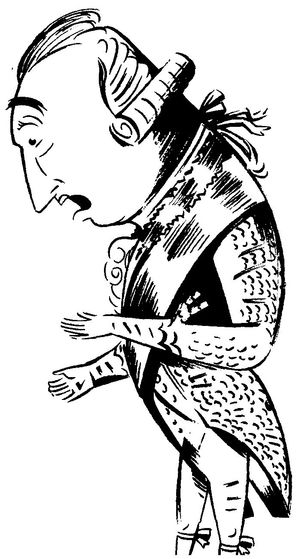
T
he peace talks took two years, and during this time there were a few more small battles in the United States. And it was at this time that one of the American Revolution's most famous soldiers joined the army under the name of Robert Shurtleff. What made Robert famous? Robert's real name was Deborah Sampson.
he peace talks took two years, and during this time there were a few more small battles in the United States. And it was at this time that one of the American Revolution's most famous soldiers joined the army under the name of Robert Shurtleff. What made Robert famous? Robert's real name was Deborah Sampson.
Sampson grew up as an apprentice on a Massachusetts farm, plowing fields, chopping wood, stacking hay. She was tall and strong and eager for adventure. In the spring of 1782, she tied her hair back, put on men's clothing, and enlisted in the Continental army. She was given a uniform, a musket, ammunition, and a knapsack. No one knew she was a woman.
In a small battle that year, Sampson was cut on the head by a sword, then shot in the thigh. Covered with blood, she was carried to a hospital, where a doctor bandaged her head wound. But Sampson didn't want the doctor to inspect her too carefullyâeven now she was thinking about keeping her secret. So she grabbed a knife and a bandage and limped out of the hospital.
Out in the woods, she sat on a fallen log and calmly cut the musket ball out of her own leg. “I found that the ball had penetrated my thigh about two inches, and the wound was still moderately bleeding.
At the third attempt, I extracted the ball.”
She bandaged the wound and hurried back to the army. Soon after, she came down with a terrible fever and was back in the hospital. Too weak to eat, drink, or even move, she lay flat on her bed for days. In fact, other soldiers were pretty sure she was dead. They started arguing over who would get her clothes and boots. She had just enough strength left to signal for the doctor. He bent over to inspect the patientâand this is where Sampson's secret was discovered. But
the doctor told no one, and when Sampson recovered she once again returned to the army.
the doctor told no one, and when Sampson recovered she once again returned to the army.
T
he American Revolution officially ended on September 3, 1783, with the signing of a peace treaty in Paris. Now everyone (even King George) had to admit the United States of America was a free and independent country.
he American Revolution officially ended on September 3, 1783, with the signing of a peace treaty in Paris. Now everyone (even King George) had to admit the United States of America was a free and independent country.
All over the country, American soldiers started heading home. Deborah Sampson took off her army uniform, put on women's clothes, and walked through camp. No one recognized her.
Joseph Plumb Martin, now twenty-three, had dreamed of this day for years. But now that it was here, he wasn't quite sure how to feel. “I can assure the reader that there was as much sorrow as joy,” he wrote. “We had lived together as a family of brothers for several years.”
George Washington and his officers felt the same mixed emotions when they got together one last time at Fraunces Tavern in New York City. The general lifted his drink in the air and said, “With a heart full of love and gratitude, I now take leave of you. I most devoutly wish that your latter days may be as prosperous and happy as your former ones have been glorious and honorable.”
Then he asked each of his companions to come up and shake his hand. Henry Knox, who was nearest, stepped up to Washington and took him by the hand. The room was silent. Every man in the place was trying desperately to keep his emotions under control.
But it was no useâGeneral Knox was the first to crack.
Knox burst into tears and grabbed Washington in a big bear hug. Then all the other officers, tears streaming down their cheeks, lined up to hug their commander.
“Such a scene of sorrow and weeping I had never before witnessed,” said Benjamin Tallmadge.
Later that afternoon Washington dried his eyes, left the tavern, walked down the street to the wharf, and stepped onto a waiting boat. He turned and waved his hat to his friends as his boat was rowed away from shore.
Washington stopped by Annapolis, Maryland (where Congress was now meeting), to officially resign as commander of the Continental army. “Having now finished the work assigned me,” he told the members of Congress, “I retire from the great theater of action.”
Then he traveled home to Virginia to enjoy a peaceful retirement with Martha at Mount Vernon.
That's what he thought, anyway.
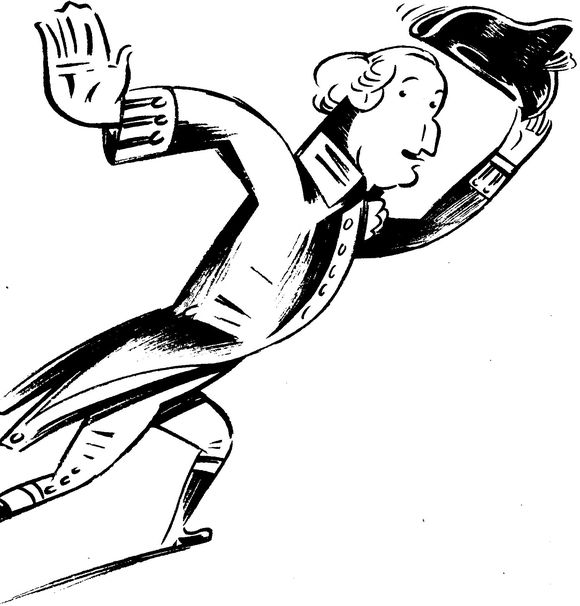
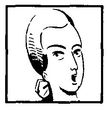
Always her husband's closest friend and advisor,
Abigail Adams
continued offering her political opinions while John Adams served as vice president, and then president of the United States. Some powerful men didn't appreciate Abigail's open participation in politicsâbut that never stopped her. When she neared death in 1818, John Adams described Abigail this way: “The whole of her life has been filled up doing good.”
Abigail Adams
continued offering her political opinions while John Adams served as vice president, and then president of the United States. Some powerful men didn't appreciate Abigail's open participation in politicsâbut that never stopped her. When she neared death in 1818, John Adams described Abigail this way: “The whole of her life has been filled up doing good.”
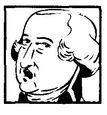
John Adams
served as American minister to Great Britain after the Revolution, actually meeting his old enemy King George IIIâit was a short, polite meeting. Following one term as president, Adams ran for re-election in 1800 and was beaten by Thomas Jefferson in America's first truly nasty presidential campaign. Adams retired to his farm in Massachusetts, later calling these years at home with Abigail “the happiest of my life.” He died at age ninety, on July 4, 1826.
served as American minister to Great Britain after the Revolution, actually meeting his old enemy King George IIIâit was a short, polite meeting. Following one term as president, Adams ran for re-election in 1800 and was beaten by Thomas Jefferson in America's first truly nasty presidential campaign. Adams retired to his farm in Massachusetts, later calling these years at home with Abigail “the happiest of my life.” He died at age ninety, on July 4, 1826.

After dedicating his entire life to the struggle for American independence,
Samuel Adams
returned to Boston and ran for the House of Representatives in the country's first congressional election. He lost to a thirty-one-year-old. Still not ready to leave politics, and too poor to retire, Adams turned to state government. He was elected governor of Massachusetts at the age of seventy-one. The $2,500 salary was by far the highest he had ever earned.
Samuel Adams
returned to Boston and ran for the House of Representatives in the country's first congressional election. He lost to a thirty-one-year-old. Still not ready to leave politics, and too poor to retire, Adams turned to state government. He was elected governor of Massachusetts at the age of seventy-one. The $2,500 salary was by far the highest he had ever earned.
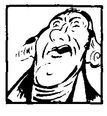
When American forces prepared to attack the British in Canada in late 1775,
Ethan Allen
was sent ahead to enlist Canadian volunteers. Instead, for some reason, he tried to capture the city of Montreal by himself. Sent to Britain in chains, Allen was later freed in a prisoner-of-war exchange. He settled in his beloved Vermont, where he died in 1789.
Ethan Allen
was sent ahead to enlist Canadian volunteers. Instead, for some reason, he tried to capture the city of Montreal by himself. Sent to Britain in chains, Allen was later freed in a prisoner-of-war exchange. He settled in his beloved Vermont, where he died in 1789.
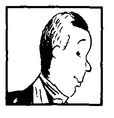
After risking his life as a spy during the Revolution,
James Armistead
returned to the plantation of his owner. He remained enslaved until his former commander, Marquis de Lafayette, petitioned the Virginia Assembly to grant his freedom, which it did in 1787. Forty years later, when Lafayette was visiting the United States, the two friends met on the street in Richmond, Virginia. They hugged.
James Armistead
returned to the plantation of his owner. He remained enslaved until his former commander, Marquis de Lafayette, petitioned the Virginia Assembly to grant his freedom, which it did in 1787. Forty years later, when Lafayette was visiting the United States, the two friends met on the street in Richmond, Virginia. They hugged.
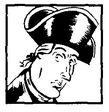
As a brand-new British general,
Benedict Arnold
led several attacks on American towns, even raiding and burning New London, Connecticut, just a few miles from his boyhood home. After the war, Arnold moved restlessly between Canada, the Caribbean, and Britain, dying quietly in London at the age of sixty. “Poor General Arnold has departed this world without notice,” reported the
London Post
. Peggy Arnold, with her husband till the end, died three years later, at age forty-four.
Benedict Arnold
led several attacks on American towns, even raiding and burning New London, Connecticut, just a few miles from his boyhood home. After the war, Arnold moved restlessly between Canada, the Caribbean, and Britain, dying quietly in London at the age of sixty. “Poor General Arnold has departed this world without notice,” reported the
London Post
. Peggy Arnold, with her husband till the end, died three years later, at age forty-four.
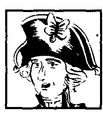
“Gentleman Johnny” Burgoyne
retired from the British army in 1784, turning instead to his true passions: playwriting and fine London living. He wrote several plays, including the comedy
The Heiress,
which was a smash hit in 1786. He died six years later, at age seventy.
retired from the British army in 1784, turning instead to his true passions: playwriting and fine London living. He wrote several plays, including the comedy
The Heiress,
which was a smash hit in 1786. He died six years later, at age seventy.
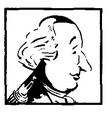
Back in Britain,
Charles Cornwallis
joined the massive public debate about who was to blame for Yorktown. His choice: fellow general Henry Clinton. Cornwallis later went on to serve successfully as military governor of British colonies in India and Ireland. He'd be sorry to see that he is sometimes still referred to as “the man who lost America.”
Charles Cornwallis
joined the massive public debate about who was to blame for Yorktown. His choice: fellow general Henry Clinton. Cornwallis later went on to serve successfully as military governor of British colonies in India and Ireland. He'd be sorry to see that he is sometimes still referred to as “the man who lost America.”
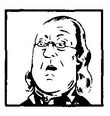
Much to the regret of the women of Paris,
Benjamin Franklin
sailed back to America in 1785. Welcomed home as a hero in Philadelphia, he was soon asked to represent Pennsylvania at the Constitutional Convention. “He is eighty-two years old,” said a fellow delegate, “and possesses an activity of mind equal to a youth of twenty-five.” After convincing many reluctant leaders to sign the completed Constitution, Franklin still wasn't doneâhe spent his final years serving as president of the Pennsylvania Society for Promoting the Abolition of Slavery.
Benjamin Franklin
sailed back to America in 1785. Welcomed home as a hero in Philadelphia, he was soon asked to represent Pennsylvania at the Constitutional Convention. “He is eighty-two years old,” said a fellow delegate, “and possesses an activity of mind equal to a youth of twenty-five.” After convincing many reluctant leaders to sign the completed Constitution, Franklin still wasn't doneâhe spent his final years serving as president of the Pennsylvania Society for Promoting the Abolition of Slavery.
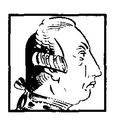
Other books
The Murder of Princess Diana by Noel Botham
Dead Man's Hand by Pati Nagle
A Dream of her Own by Benita Brown
The City and the Stars by Arthur C. Clarke
The Bottom of Your Heart by Maurizio de Giovanni, Antony Shugaar
Perfectly Imperfect (Perfectly #1) by Fabiola Francisco
The Speed Chronicles by Joseph Mattson
Unforgettable by Meryl Sawyer
The Matchmaker Meets Her Match by Jenny Jacobs
Twice Shy (The Restraint Series) by Flanagan, Jill C, Christie, Jill